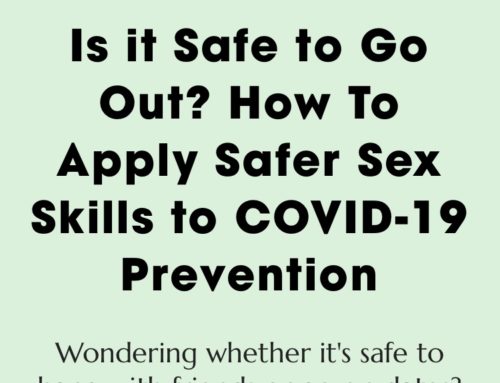Hi Yana,
I’m 21 years young, genderqueer, very sexual, and polyamorous! I have a penis; I also have genital herpes. Is there a best time to tell a partner?
If I have symptoms or have had them recently it’s not much of a conundrum because there’s no choice to be made [besides abstaining]. If I’m totally symptom-free for a period of time, I’ve been told having P-in-V [penis in vagina] while wearing a condom puts the risk of transmission at less than 1 percent. I tell partners this and let them decide what to do. There have been times when I’ve felt I dropped this too early and it was a mood-killer, but I’ve also dropped it when we’re already naked and it felt like maybe the partner could be too deeply aroused to make a well-thought-out decision. Your thoughts?
— On a No-Transmission Mission
Dear ONTM,
Kill “The Mood” dead! This idea that there’s a sexual mood that must be protected at all costs gets in the way of sexual realness. Fear of killing The Mood is cited as the reason why people don’t want to practice consent; why people don’t want to speak up when they’re feeling uncomfortable; and why many avoid safer-sex talks. We’ve been spoon-fed The Mood myth by movies, music, and media — and we’ve swallowed it down along with our humanness, authenticity, and safer-sex practices!
Once The Mood is kissed goodbye, we’ve got a lot more freedom to negotiate your sexual interactions with genital herpes. Herpes is an incurable STI/STD that is spread via contact between the contagious area — mouth or genitals — or broken skin of someone with the virus and someone’s mucous membrane tissue — mouth/genitals. Herpes is always present and transferrable even if the person with the virus isn’t showing any signs of an outbreak. Most people with herpes don’t show symptoms and/or don’t know they have the virus.
It sounds like you already know that herpes is most contagious during an active outbreak. But let’s go over the three main ways to prevent spreading genital herpes anyway:
1.) During an outbreak, don’t have vaginal, anal, or oral sex — even with a condom/barrier. Wait until seven days after sores heals.
2.) Risk of transmission can be greatly reduced by taking prescription anti-herpes medication.
3.) Use condoms/dental dams/gloves between outbreaks to reduce the risk of transmission.
I couldn’t find a source citing the 1 percent factoid you mention, but condoms can cut the risk of transmitting herpes in half. Eight out of 10 people have oral herpes and 4 out of 10 have genital herpes. Herpes is common, incurable, manageable, and, most importantly, part of many people’s sex lives…continue reading…


